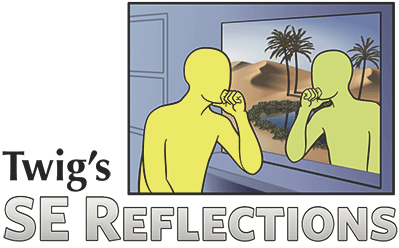There are times when I know that I’ll need to interrupt my client for some reason or another. Either I need to redirect his attention away from reinforcing over-activation or I need to be able to ask for her to track body sensations somewhere along the retelling of a story or some such thing. In all cases its never a perfect intervention. It’s an intrusion on their autonomy and whenever possible I’m trying to enhance their autonomy, not diminish it. To minimize the impacts of this I often try to pre-establish a “contract” around the potential of this interruption. [I only do this when I think I’ll probably need it later, otherwise it’s better not to risk the disruption of this comment in the first place.]
I set up this contract for several reasons, most are for the client’s benefit. However, the strongest reason is for me. It is helpful for me to successfully act when I find myself needing to do the the interrupting. Without being able to lean on this contract I often find myself bitting my tongue in a bit of a freeze knowing that I should interrupt but not feeling comfortable or confident enough to do so [Admittedly, I rarely get stuck here now days but there was a time that it happened frequently]. Pre-establishing certain elements of the contract or expectations between you and your client can help structure your sessions for success.
Here’s a language pattern I might use for this:
Early in our work together I might say: “…As we go along, I might interrupt you for this or that reason, maybe to investigate something or what have you. Is it going to be okay with you if I need to do that?”
My goal here is pretty specific: I want to have an agreement that it’s going to be okay for me to interrupt. [If I sense hesitation or disaffection with the idea, then I’m far less likely to use this kind of interruption.]
Even when contracted for I want to reserve the use of blatant interruption as much as possible. Still, I want to be able to lean on this option when I know I need to interrupt and am hesitant to do so because I either don’t want to be rude or be seen as “disrespecting their process” or whatever.
To lean in here I might say something during a session like: “This is going to be one of those moments I was talking about before when I said that I might need to interrupt you. Can I ask if it would be possible to…[insert desired redirection of attention]”
Being able to say “we already agreed to this” makes a huge difference when I’m about to freeze in myself and not interrupt when I really know I should. That little extra bit of structure helps me respond better under stress.
In launching this SE Reflections blog I think I’ll do well to start with a similar “contract” which might help me structure for more spontaneity. Let’s try this:
“This blog is an offer to do my best but that effort comes with my limitations. In that way, I’m going to focus here on Progress not Perfection. I can’t make this perfect. I shouldn’t try. You shouldn’t expect it. We should agree on that. We’re casual here. That’s the only way it’ll work. It’s just meant to offer my help as best I can.”
With that I’ll call this a step in the right direction and look forward to sharing more soon. This project has begun. Stay tuned.

